Katerina Akassoglou earned a BSc degree in biology and a PhD in neuroimmunology at the Hellenic Pasteur Institute and the University of Athens, Greece. She was trained in neuropathology at the University of Vienna before performing her postdoctoral work
at the Rockefeller University and New York University. She started her laboratory as an Assistant Professor at the Department of Pharmacology at the University of California, San Diego where she was promoted to Associate Professor with tenure. She
is now a Senior Investigator at the Gladstone Institutes, a Professor in the Department of Neurology at the University of California, San Francisco (USCF), and the founder and Director of the Center of Neurovascular Brain Immunology at Gladstone and
UCSF.
Dr. Akassoglou has pioneered studies on neurovascular regulation of inflammation and tissue repair and the molecular interface blood proteins utilize to interact with nervous system cells. She developed a first-in-class fibrin-targeting
immunotherapy to protect the brain from pathogenic neuroinflammation in neurological diseases, such as multiple sclerosis and Alzheimer’s disease. She has published over 100 papers and book chapters and is a named inventor on 10 issued and several
pending patents. Dr. Akassoglou was awarded by the White House the Presidential Early Career Award for Scientists and Engineers, the John J. Abel Award in Pharmacology, the Dana Foundation Award, The Marilyn Hilton Award for Innovation in MS Research,
the Greek Top Women Award, the Barancik Prize, the ISFP Prize and she was named by the San Francisco Business Times among the 2021 Most Influential Women in Bay Area Business.
Dr. Akassoglou is a Fellow of the American Neurological Association,
an elected Fellow of the National Academy of Inventors, and a Lifetime Fellow of the American Association for the Advancement of Science. Dr. Akassoglou has been a member of ASPET since 2005 and served as a principal investigator of the ASPET Summer
Undergraduate Research Fellowship Training Grant for five years. She was elected Secretary/Treasurer of the Molecular Pharmacology Division in 2016 and served on the editorial board of Molecular Pharmacology for six years. In 2022, she delivered
the ASPET-JPS Keynote Lecture at the 95th Japanese Pharmacological Society Meeting in Fukuoka, Japan.
 Wayne Backes received his undergraduate degree in chemistry from Western Maryland College, his PhD in biochemistry from West Virginia University, and completed postdoctoral studies in pharmacology at the University of Connecticut Health Center,
under the direction of John B. Schenkman. He joined the faculty as an Assistant Professor at Louisiana State University Medical Center – New Orleans in 1984, and is currently the Joseph M. Moerschbaecher, PhD Professor of Pharmacology and
the Associate Dean for Research for the School of Medicine at Louisiana State University Health Sciences Center – New Orleans.
Wayne Backes received his undergraduate degree in chemistry from Western Maryland College, his PhD in biochemistry from West Virginia University, and completed postdoctoral studies in pharmacology at the University of Connecticut Health Center,
under the direction of John B. Schenkman. He joined the faculty as an Assistant Professor at Louisiana State University Medical Center – New Orleans in 1984, and is currently the Joseph M. Moerschbaecher, PhD Professor of Pharmacology and
the Associate Dean for Research for the School of Medicine at Louisiana State University Health Sciences Center – New Orleans.
Dr. Backes’ research interests focus on the mechanism of cytochrome P450 function. In earlier
work he characterized aspects of the spectral changes that occur when substrates are added to this heme protein, and how they are related to electron transfer between NADPH-cytochrome P450 reductase (POR) and P450. These studies were extended
to examining the relationship between the number of electrons present in POR (i.e. it reduction sub-state) and its ability to reduce CYP2B4. As these electron transfer reactions involve the physical interaction between POR and cytochrome P450,
the results raised questions related to how the P450 system proteins were organized in the endoplasmic reticulum. P450 system proteins are crowded into the ER membrane, leading to a significant potential for their formation of complexes with other
ER-resident proteins. His lab demonstrated that different P450s were capable of forming both homomeric and heteromeric P450•P450 complexes that affected P450 catalytic function. Many of these P450•P450 complexes differentially affected
POR binding, leading to inhibition of the activity of one P450 moiety and stimulation of the other moiety of the complex. The Backes lab is now examining the ability of different P450s to interact with heme oxygenase-1 (HO-1), a protein that also
requires an interaction with POR in order to function. Interestingly, HO-1 was shown to form specific complexes with some, but not all P450 enzymes, and the different P450•HO-1 complexes led to differing effects dependent on the specific
P450 form involved.
Dr. Backes has served on the Editorial Board for Drug Metabolism and Disposition, and Frontiers of Pharmacology, Specific Field Editor for the Journal of Pharmacology and Experimental Therapeutics and Associate Editor for Frontiers in Pharmacology: Pharmacogenetics and Pharmacogenomics. He currently is an Associate Editor for Drug Metabolism and Disposition.
Dr. Backes has been an active member of ASPET, serving in both
the Toxicology (Secretary/Treasurer), and Drug Metabolism and Disposition (Secretary/Treasurer; Chair) Divisions. He served as a member of the Finance Committee (2013-2019). He also served as ASPET Councilor from 2015-2018. In 2019, he was elected
as ASPET President, serving on ASPET Council until 2021. Dr. Backes currently is a member of the Science Policy Committee.
Mary-Ann Bjornsti, PhD

Mary-Ann Bjornsti is Professor and Chair of the Department of Pharmacology and Toxicology at the University of Alabama at Birmingham (UAB), and Associate Director for Translational Research in the O’Neal Comprehensive Cancer Center.
She received her PhD from the University of Minnesota in Genetics and subsequently pursued a Fogarty Fellowship at the Biozentrum in Basel, Switzerland, where she studied bacterial nucleoid structure. She then moved to Harvard University
where she was a post-doctoral fellow in the lab of Dr. James Wang and pioneered the use of the genetically tractable yeast model system to investigate the mechanism of action of DNA topoisomerase I and chemotherapeutics that target this enzyme.
In 1989, she moved to Thomas Jefferson University in Philadelphia. As an Assistant, then Associate Professor, her lab expanded these studies to include genetic and biochemical studies of cellular pathways dictating tumor cell response to these
drugs.
In 1999, she joined the faculty at St. Jude Children’s Research Hospital, and in 2009, was recruited to UAB. As Associate/Full member at St Jude Children’s Research Hospital and Member of the Developmental Therapeutics of Solid Malignancies
Program, and as Professor and Chair at UAB, her lab focused on translating basic mechanisms of chemotherapeutic drug action and cellular pathways that regulate drug responses to human cell lines and mouse models. At UAB, she has been actively
engaged in building a robust department with research programs in cancer and neuro-pharmacology. She has also promoted the integration of pharmacology content into the medical school curriculum and the development of a pharmacology-focused theme
in the umbrella graduate biomedical sciences PhD program at UAB.
She serves as MPI of a UG1 National Clinical Trial Network Lead Academic Participating Site grant, and is on the Executive Committee for the Alabama Drug Discovery Alliance and several External Advisory Boards for NCI-designated Cancer Centers. Dr.
Bjornsti has actively participated in NIH peer-review, and is currently a member of Cancer Center Study Section NCI-A. At ASPET, she served on the Program and Science Policy Committees, as Chair of the Division of Cancer Pharmacology and as Secretary-Treasurer.
She also served as Secretary, then President, of the Association of Medical School Pharmacology Chairs. At FASEB, she was the ASPET representative to the Science Policy Committee for several years, then served as Vice-President for Science Policy
and is currently President-elect.
Kathryn A. Cunningham, PhD

Kathryn A. Cunningham received her B.A. in psychology/philosophy from the University of St. Thomas in Houston and her PhD in neuropharmacology from the University of South Carolina in Columbia. She is currently the Chauncey Leake Distinguished Professor
of Pharmacology, Director of the Center for Addiction Research, and Vice Chair of the Department of Pharmacology and Toxicology at the John Sealy School of Medicine at the University of Texas Medical Branch in Galveston, Texas.
Dr. Cunningham has catalyzed translational research advances in neuropsychopharmacology with a particular emphasis on substance use disorders (SUDs), the underlying neurobiology of behavior, and new target and drug discovery. Her strategy is to discover
key mechanism-based advances in cellular and animal models and move this knowledge into human research to develop effective and safe therapeutics to maximize human function. She has strong collaborations with chemists, cellular biologists, and
preclinical and clinical scientists with the goal to develop innovative diagnostics and therapeutics based upon biosignatures of SUDs. Her research program has been continuously funded by the National Institute for Drug Abuse for 30 years and
has generated seminal observations and developed new technologies which are described in 180+ peer-reviewed publications. She pioneered small molecule discovery to become a principal inventor on three patents which are moving novel therapeutics
toward the clinic.
Dr. Cunningham recently published the Handbook of the Behavioral Neurobiology of Serotonin, edited with Christian Muller; this 1,000+ page centerpiece handbook will serve as a reference for the next 20 years. Her success has been recognized
with several awards, including the ASPET-Astellas Award for Translational Pharmacology, the Marian W. Fischman Memorial Award, the Paul Vanhoutte Award for Excellence in Science, and the UTMB Distinguished Faculty Research Award. She is an active
educator, and board member for community programs and works to foster awareness and knowledge of SUDs diagnosis and treatment, particularly focused on reducing stigma.
Dr. Cunningham has a life-long commitment to diversity, inclusion, and equity as a driver of excellence in science and education. She founded and directed the UTMB Summer Undergraduate Research Program which succeeded in enhancing the diversity of
the graduate school population. As T32 Director, she has overseen efforts to increase the present census to 32% diversity mentees. Her own protégés include 50 pre- and postdoctoral fellows (65% female; 35% diversity) who have published
extensively, secured funding as well as established successful careers in academia, government, and/or industry. Dr. Cunningham has been recognized by the College on Problems of Drug Dependence Mentorship Award, based upon her mentees’ nomination.
She is a member of the UTMB Academy of Research Mentors and was awarded the 2020 UTMB Mentorship Award.
Dr. Cunningham has been a member of ASPET since 1990 and has held leadership positions in the Neuropharmacology Division, and served as a member of the Nominating Committee, Committee on Substance Abuse, and organizer of the first FASEB Summer Research
Conference on Drug Abuse. She directed the UTMB/ASPET Summer Undergraduate Research Program for eight years and is currently a member and the Secretary-Treasurer of the ASPET Council. Additional contributions to the discipline of pharmacology
includes serving in roles of the Association of Medical School Pharmacology Chairs. Dr. Cunningham is also a Fellow of the American College of Neuropsychopharmacology and the College on Problems of Drug Dependence.
Martha I. Dávila-García, PhD

Martha Dávila-García received her BS in Biology from Slippery Rock University in 1982, and a Master’s and PhD degree in Biology from New York University (NYU) in 1986 and 1989, respectively. She went on to do a Postdoctoral Fellowship
on pharmacology at the University of California, Irvine with Frances M. Leslie and a second postdoc with Kenneth J. Kellar. Dr. Dávila-García joined the faculty of the Pharmacology Department at Howard University (HU) College of
Medicine in 1999 and is presently an Associate Professor of Pharmacology.
At Georgetown University she developed several nicotinic receptor ligands for use in mapping and studying the pharmacological properties of nicotinic receptors
in both animal models and human brains. Her work, and that of her colleagues, on mapping and quantifying nicotinic receptors in human smokers versus non-smokers helped shape the U.S. Food and Drug Administration’s 1996 ruling that reclassified
nicotine as a neuroactive drug.
Dr. Dávila-García’s research at HU has been focused on the role different nicotinic receptor subtypes play in central control of cardiorespiratory pathways and the consequences of nicotine exposure to synaptic plasticity and neuronal
function. Her present interest is on the role menthol plays in nicotine addictive properties.
Dr. Dávila-García is passionate about teaching and mentoring. At HU she has taught and mentored graduate, medical, dental, allied health and pharmacy students and is the Director of Graduate Programs for the Pharmacology Department.
She serves as an Executive leader of the Woman in World Neuroscience (WWN), an advocacy group that aims to improve career development, mentoring and networking opportunities for female scientists around the world, with special attention to women
in disadvantaged regions. She is a life member and is on the Board of the Society for the Advancement of Chicanos, Latinos and Native Americans in STEM (SACNAS), and recently garnered funds from the National Institutes of Health to allow 650 marginalized
students to attend the National Diversity in STEM (NDiSTEM) Conference for five years, where she judges pharmacology posters and mentors students in pharmacology and career development.
In collaboration with Dr. Robert P. Biney from Cape Coast University, Dr. Dávila-García began a short-term intense “School of Neuropharmacology Research and Drug Development” in Africa, with funds from the International Brain
Research Organization and the African Research Council. The objective of the school is to provide non-pharmacology/pharmacy scientists with basic knowledge on pharmacological principles and practices relevant in studying natural compounds. She
hopes to create similar schools in the US.
A 25-year active member of ASPET, Dr. Dávila-García was a member of and served as the Chair of the Committee on Diversity for many years and was recently asked to be the Chair of the Inclusion, Diversity, Equity, and Access task force.
She is also an active member of the Minority and Career Development Committee, the Executive Committee of the Neuropharmacology Division, the Membership task force, and the Awards Committee. Dr. Dávila-García has been a mentor on
the Mentoring Network Program and has organized several symposia and presented or organized multiple webinars for the Focus in Pharmacology series.
Carmen W. Dessauer, PhD

Carmen W. Dessauer earned her BS and PhD in biochemistry from Louisiana State University. She was a postdoctoral fellow in the laboratory of Nobel laureate, Alfred G. Gilman, at the University of Texas Southwestern Medical Center. In 1998, she joined
the faculty in the Department of Integrative Biology and Pharmacology at the University of Texas Health Science Center at Houston. Dr. Dessauer is currently the John P. and Kathrine G. McGovern Distinguished Chair at the McGovern Medical School,
University of Texas Health Science Center at Houston. After serving 5 years as vice-chair, she is now Professor and Chair, ad interim of the Department of Integrative Biology.
Dr. Dessauer’s postdoctoral research examined the mechanisms of G protein regulation of adenylyl cyclase (AC), the enzyme that synthesizes the second messenger cyclic AMP. She elucidated the catalytic mechanism of AC and the molecular
basis for P-site inhibition using the innovative approach of reconstituting enzyme activity from its purified cytosolic domains. This work was the basis for interpretations of later crystal structures. In her own laboratory, Dr. Dessauer has identified
novel scaffolding proteins that define subcellular organization of cyclic nucleotide signaling pathways. Her work has brought the concept of scaffolding of AC enzymes to drive cAMP compartmentalization and ultimately physiological function to
the forefront of biomedical research through her laboratory’s pioneering studies of A-kinase anchoring proteins (AKAPs). In collaboration with John Scott’s lab, she established that AKAPs bind specific ACs to temporally and spatially
regulate cAMP production. She has shown that these multi-protein complexes help to facilitate negative feedback regulation of AC and sensitize the system by greater than 100-fold to the effects of cAMP. Thus, her work demonstrates that much less
agonist is required to stimulate effectors within these multimeric complexes, demonstrating the power of local cAMP production. She has identified many AC-scaffolds in the heart and neurons that are important in disease states, including cardiac
arrhythmias and chronic pain. Her latest work identifies a new type of AC scaffold (POPDC), whose association with AC regulates heart rate control. She is widely considered the leader of the adenylyl cyclase field.
Her research has been continuously funded since 2000 by the National Institutes of Health (NIH), in addition to funding by the Mathers Foundation, American Heart Association, Craig Neilsen Foundation, and others. She has a passion for teaching
and mentoring the next generation and is the Principal Investigator of a National Institute of General Medical Sciences T32 training program on drug discovery. She was the recipient of the Paul Darlington Mentoring Award in 2022.
Dr. Dessauer has been a member of ASPET since 2010, serving as Secretary/Treasurer of the Molecular Pharmacology division in 2012 and the Chair of this division in 2022. She has organized and chaired several ASPET-sponsored sessions at Experimental
Biology, in addition to Gordon Research Conferences and International AKAP meetings. Dr. Dessauer served on the advisory council for the National Institute of General Medicine from 2014-2018 and has chaired numerous NIH study sections. She was
awarded the WFF Excellence in Basic Science Award in 2017 and is a Fellow of the American Association for the Advancement of Sciences.
Charles P. France, PhD
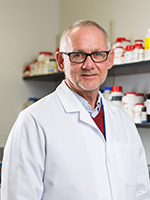
Charles P. France is the Robert A Welch Distinguished University Chair in Chemistry and Professor in the Departments of Pharmacology and Psychiatry at the University of Texas Health Science Center at San Antonio (UTHSCSA).
He did undergraduate studies at Northland College and the University of Minnesota and received his MA and PhD from the University of Michigan. After a postdoctoral fellowship at Harvard Medical School, he held faculty appointments at the University
of Michigan, LSU Health Science Center in New Orleans, and UTHSCSA where he founded and is the current Director of the Addiction Research, Treatment and Training Center of Excellence.
His laboratory has pioneered studies on the behavioral pharmacology of substances of abuse and has contributed preclinical pharmacology data to the dossier for several marketed drugs. He holds several patents, and his laboratory has developed novel
procedures for evaluating abuse-related effects of drugs in non-humans, particularly opioids in non-human primates. Dr. France and colleagues are developing promising new compounds for treating opioid overdose and opioid use disorder. His laboratory
collaborates with and conducts abuse liability studies for pharmaceutical and biotech companies. He has been funded continuously by the National Institutes of Health for 32 years and he was the recipient of an Independent Investigator Award (K02)
and Senior Scientist Research Award (K05), both from the National Institute on Drug Abuse.
Dr. France has mentored many students, trainees, and early career investigators and he is committed to training the next generation of biomedical researchers. In addition to directing a National Institute on Drug Abuse T32 postdoctoral training program,
he has mentored more than 90 high school, undergraduate, and doctoral students in addition to 19 postdoctoral fellows and numerous early career faculty members. In 2009 he launched a new annual scientific meeting (Behavior, Biology & Chemistry: Translational Research in Substance Use Disorders)
that has the goal of recruiting students and trainees to a career in substance use disorder research.
Having been a member of ASPET since 1992, Dr. France has served in a number of leadership roles in the Society, including being a member of the Executive Committee and Chair of the Behavioral Pharmacology Division, member of the Program Committee,
the PIPPS Steering Committee, the Finance Committee, the Investment Subcommittee, the Science Policy Committee, Liaison to several different ASPET divisions, Chair of the Awards Committee, and Chair of the Nominating Committee. He served 9 years
on ASPET Council, having been elected Councilor, then Secretary/Treasurer, and most recently President. He was an ASPET Delegate to the World Congress of Pharmacology meetings in Cape Town (2014) and Kyoto (2018) and since 2009, he has organized
an annual ASPET Volunteer Day for EB attendees to give a day of service to the community where the annual meeting is held.
He has served on the editorial board of the Journal of Pharmacology and Experimental Therapeutics and is currently an Associate Editor for Pharmacological Reviews. He is a fellow in the American College of Neuropsychopharmacology
and the American Psychological Association.
J. Silvio Gutkind, PhD
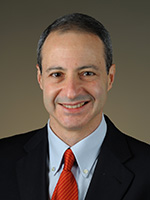
J. Silvio Gutkind received his PhD in Pharmacy and Biochemistry from the University of Buenos Aires, Argentina, and joined the National Institute of Dental Craniofacial Research (NIDCR) at the National Institutes of Health (NIH) after his post-doctoral
training at the National Institute of Mental Health and the National Cancer Institute. He served as the Chief of the Oral and Pharyngeal Cancer Branch, NIDCR, NIH, for more than 20 years, until his recruitment to the University of California San
Diego (USCD), where he is now Distinguished Professor and Chair, Department of Pharmacology, School of Medicine, and Associate Director for Basic Science at the Moores Cancer Center.
Dr. Gutkind’s seminal work has elucidated
the complexity of intracellular signaling circuitries regulated by G proteins and G protein-coupled-receptors (GPCRs) in fundamental physiological processes and a myriad of disease states. He pioneered the study of oncogenic G proteins and GPCRs,
discovering that GPCRs signal to the nucleus through novel protein interaction networks rather than solely through classical second messengers. He discovered that Rho GTPases control gene expression through mitogen activated kinase (MAPK) cascades,
and that GPCRs and tyrosine kinase receptors converge to activate Rho-MAPK signaling networks to promote cell proliferation. His team discovered that a virally encoded GPCR initiates Kaposi’s Sarcoma, and that mTOR, a metabolic sensor, plays
a central role in these angiogenic tumors. His recent analysis of cancer genomes revealed widespread driver mutations in GPCRs and G proteins, including the GNAQ melanoma oncogene, encoding activated Gαq proteins. Using innovative systems
biology approaches, he discovered new targetable signaling vulnerabilities in the Gαq-oncogenic network, including the Hippo pathway. Dr. Gutkind led multi-institutional clinical trials establishing the benefits of mTOR inhibition for oral
cancer prevention and treatment, and he is currently developing novel multimodal precision cancer immunotherapies.
Dr. Gutkind has been a member of the Executive Committee, Molecular Pharmacology Division since 2015, member of the Editorial
Advisory Board, Molecular Pharmacology (2015-present), and co-chaired the Symposium on “Cancer Stem Cells as Pharmacological Targets” (2016 ASPET Annual Meeting) and Symposium on “G Proteins and GPCRs in Cancer” (2017 ASPET
Annual meeting). He had the honor of serving as the 2020-2021 ASPET Chair of the Division of Molecular Pharmacology, and he is currently the Division Past Chair.
His honors include the NIH Merit Award, the Elliot Osserman Award
from the Israel Cancer Research Foundation, the Pharmaceutical Research and Manufacturers of America (PhRMA) Research & Hope Award, and his selection as American Society for Biochemistry and Molecular Biology (ASBMB) Fellow. He was elected
in 2019 to the National Academy of Medicine, recognizing his team’s translational efforts in the area of cancer signaling. He has published over 550 research articles in some of the most prestigious journals and has organized many national
and international meetings and symposia on signal transduction and cancer research.
Dr. Gutkind has mentored many junior investigators, who are now playing leadership roles academia, government, pharma, and biotech industries
in the United States and abroad. In recognition of his dedication to education and mentorship, Dr. Gutkind was the recipient of the 2021 UCSD Chancellor’s Award for Excellence in Postdoctoral Scholar Mentoring.
Tracy M. Handel, PhD

Tracy Handel obtained a BS in Chemistry at Bucknell, and PhD, also in chemistry, at Caltech where she received the McKoy Award for excellence in graduate research. She then conducted postdoctoral work at DuPont Merck Pharmaceuticals and stayed on
as principal investigator in structural biology, while concurrently chairing an inflammatory diseases team focused on chemokine receptor drug discovery. After two years, Dr Handel transitioned into academia and joined the Molecular and Cell Biology
Department at the University of California Berkeley where she received tenure. She was recruited in 2005 to the University of California, San Diego by Palmer Taylor, then Dean of the Skaggs School of Pharmacy and Pharmaceutical Sciences (SSPPS),
where she is currently Distinguished Professor, while also strongly involved in the Department of Pharmacology. She served as Division Chair of Pharmaceutical Sciences in SSPPS for two 3-year terms.
Dr Handel’s initial research in the chemokine field focused on the ligands. Early discoveries include demonstrating the critical importance of reversible oligomerization in the function of chemokines, which bind as monomers to chemokine receptors
but as oligomers to glycosaminoglycans, and the critical importance of the glycosaminoglycan interactions. When she transitioned to UCSD, her focus shifted more towards chemokine receptor structure and signaling, largely influenced by colleagues
in Pharmacology. Her lab solved the structure of the first chemokine receptor (CXCR4) in complex with chemokine. Subsequent structures included that of CCR2 with an orthosteric and allosteric antagonist, a chemokine complex of CCR5, and most recently
several small molecule and chemokine complexes with the atypical b-arrestin-biased receptor, ACKR3, the latter with John Tesmer. These structures and related functional studies provided significant insight into how chemokines are activated and
antagonized. Other areas of study include identification and characterization of chemokine receptor scavenging as a G protein independent function of many G protein-coupled chemokine receptors, a process that may have a significant impact on cell
migration and the efficacy of drugs targeting the receptors. Moving more translational, Dr Handel’s most recent research involves a collaboration with Dr. J. Silvio Gutkind to exploit the chemokine system and modulate the cell composition
and inflammatory status of the tumor microenvironment in order to enhance the efficacy of cancer therapies.
In addition to research, Dr Handel has been heavily involved in training and mentored approximately 50 graduate students and postdocs. She served as Chair of the Biomedical Sciences PhD program, an umbrella program of more than 200 faculty and 200
students. She also served as co-director of the Molecular Biophysics Training Grant, co-director of the Pharmacological Science Training Program grant with Joan Heller Brown and will become next PSTP director. She also co-chairs the Molecular
Pharmacology and Drug Discovery Training Area of the BMS program, co-chairs the education committee in pharmacology, chaired the PSTP core course “Drugs and Disease” for many years and participates in other Pharmacology related courses
for PhD, PharmD and MD students. She also served as Chair and Chair-elect of the ASPET Division of Molecular Pharmacology, and whenever possible, encourages students and postdocs to get engaged in ASPET, attend meetings and take advantage of ASPET
resources.
Pamela J. Hornby, PhD

Pamela J. Hornby’s research has focused on the mechanisms that can lead to potential therapeutics for patients who suffer from diseases originating in the gut. Her research has added to the scientific knowledge of brain-gut communication
in functional bowel disorders, gut-endocrine signaling in obesity and Type 2 Diabetes, and how the gut microbiome-host metabolism can
influence health and disease. Her career has included positions in academia at Louisiana State University Health Sciences Center (LSU-HSC), and in drug discovery at Janssen Pharmaceutical Research & Development Johnson &
Johnson. She is an Adjunct Professor in the Department of Pharmacology and Physiology at Drexel University College of Medicine.
Dr. Hornby established an independent lab in Brain-Gut Neuropharmacology in the Department of Pharmacology and Experimental Therapeutics at LSU-HSC, based on training in autonomic neuropharmacology at Georgetown University’s Department of Pharmacology
with Dr. Richard Gillis. She rapidly rose through the ranks to Full Professor of Pharmacology and Experimental Therapeutics and led an internationally recognized, research laboratory that was continuously funded by the National Institutes for
Health. She applied her experience there to lead a Gastrointestinal Therapeutic Discovery Team at Janssen, which resulted in the discovery of eluxadoline, a gut-restricted mixed opioid modulator. She provided pharmacology support for this drug
through completion of clinical Phase 2b and Viberzi® was ultimately launched for patients with diarrhea-predominant irritable bowel syndrome.
In Biotechnology Dr. Hornby’s entrepreneurial research advanced the field in alternate translational models of the human gut and oral delivery of monoclonal antibodies. Subsequently, she applied her knowledge of translational pharmacology to
enable progression of compounds for metabolic disease in preclinical models. Her sustained publication record demonstrates an increasing ability to integrate neural, immunological and metabolic pathways in gastrointestinal pharmacology and she
was named a Janssen Fellow in recognition of her contributions as a leading industry scientist.
Throughout her career as a bench-associated scientist, she has enthusiastically supported ASPET since becoming a member in 1994. ASPET has enabled her to make connections, which directly led to funding research collaborations in academia and in research
and development. As an example of the latter, she obtained a prestigious Science Foundation Ireland grant with co-investigator Dr. Niall Hyland (member of the British Pharmacological Society) for research at University College Cork. Dr. Hornby’s
key roles in ASPET are to promote Translational Pharmacology and to strengthen the future of the discipline, in part by increasing diversity, equity and inclusion. She mentors trainees and early career scientists, especially those who are interested
in the careers available in industry. As an active Mentoring and Career Development Committee member, she has been a mentor in the Big Ideas mentoring program for 3 cohorts to date. She currently serves as TCPD representative to the Program committee
and on the Major Awards Committee.
Allyn C. Howlett, PhD

Allyn C. Howlett earned a PhD in Pharmacology from Rutgers Medical School, followed by postdoctoral training in pharmacology at the University of Virginia with A.G. Gilman. Her first faculty appointment was in the Saint Louis University Department
of Pharmacology, where she played a major role in the development of a new medical pharmacology curriculum and graduate program. From 2000-2006, she was the founding Director of the Neuroscience of Drug Abuse research program at the newly established
Julius Chambers Biomedical/Biotechnology Research Institute at North Carolina Central University (NCCU). This was funded by a cooperative agreement grant from the National Institute on Drug Abuse to build a research program at this historically
black university. Between 2004-2006, she also served as the Assistant Director of the masters’ program in Biology and established the NCCU-Wake Forest University Bridge to the PhD funded by the National Institute of General Medical Sciences.
She subsequently took a full-time faculty appointment in the Wake Forest University School of Medicine’s Department of Physiology and Pharmacology in 2006, and later served as Director of the Integrative Physiology and Pharmacology PhD training
program from 2010-2015.
Dr. Howlett currently serves as the Assistant Dean of the Wake Forest University Graduate School of Arts and Sciences (Biomedical Programs), and the Director of the Office of Postdoctoral Education. As
such, her office developed experiential programs in academic educational “Postdoctoral Research, Instruction and Mentorship Experience (PRIME)” program, as well as guidance for industry employment “Mentoring for Careers in Alternative
Biomedical Excellence (MeCABE)” program. She directed the Maya Angelou Center for Health Equity’s Health Equity Research Opportunity (HERO) program, to recruit and retain adjunct junior faculty from neighboring minority-serving
partner institutions to collaborate in mentored research partnerships with National Institutes of Health (NIH)-funded faculty at Wake Forest University School of Medicine.
Dr. Howlett is an expert on cannabinoid receptor signal transduction,
noted for her discovery of the CB1 cannabinoid receptor, development of the radioligand binding assay for the cannabinoid receptors, and development of antibodies that have been made available to researchers worldwide. She has worked with chemists
to characterize the structure-activity relationships of non-classical cannabinoid agonists, and to identify aminoalkylindole ligands as cannabinoid receptor agonists. Her laboratory investigates signaling in cultured neuronal cell models and brain
preparations via a number of signal transduction pathways. Her early research was funded by the Pharmaceutical Manufacturers Association Foundation awards and has since been continuously funded by the National Institute on Drug Abuse. She has
participated as a full member of NIH study sections throughout her career.
Dr. Howlett has enjoyed continuous membership in ASPET since 1981 and has reviewed for ASPET journals for this entire duration. She served on the Neuropharmacology
Division Executive Committee (1996-1998) and the Molecular Pharmacology Division Executive Committee as chair (Elect/Chair/Past; 2019-2021). She attended many International Union of Pharmacology (IUPHAR) meetings and participated in the IUPHAR
Pharmacology Educators programs. Dr. Howlett chaired the IUPHAR Nomenclature Committee Subcommittee for the cannabinoid receptors for 20 years, during which time she led the committee in publication of two comprehensive reports in the field (Pharmacol.
Reviews 2002 and 2010). Dr. Howlett is honored to now become an ASPET Fellow.
Susan L. Ingram, PhD
 Susan L. Ingram received an AB from Bowdoin College and a PhD in Pharmacology from Oregon Health & Science University in the laboratory of Dr. John Williams. She was a Human Frontiers Postdoctoral Fellow in the laboratory of Dr. Macdonald
Christie at the University of Sydney followed by a postdoctoral fellowship in the laboratory of Dr. Susan Amara at the Vollum Institute in Portland, OR. Dr. Ingram’s first faculty position was in the Department of Psychology at Washington
State University Vancouver and she is currently Professor and Vice-Chair of Research at the University of Colorado Anschutz Medical Campus.
Susan L. Ingram received an AB from Bowdoin College and a PhD in Pharmacology from Oregon Health & Science University in the laboratory of Dr. John Williams. She was a Human Frontiers Postdoctoral Fellow in the laboratory of Dr. Macdonald
Christie at the University of Sydney followed by a postdoctoral fellowship in the laboratory of Dr. Susan Amara at the Vollum Institute in Portland, OR. Dr. Ingram’s first faculty position was in the Department of Psychology at Washington
State University Vancouver and she is currently Professor and Vice-Chair of Research at the University of Colorado Anschutz Medical Campus.
Dr. Ingram’s research is focused on understanding neuronal mechanisms of synaptic plasticity involved in pain and drug addiction circuits. Her interests in opioids began during her graduate work, understanding how opioids modulated primary afferent excitability. It continued during her postdoctoral work which focused on understanding the effects of opioids on neurotransmitter release in the periaqueductal gray (PAG), part of the descending pain modulatory circuit. Her recent work has focused on functional selectivity of agonists and specific signaling pathways involved in pre- and postsynaptic GPCR function, as well as the role of adaptations in GABAA receptors in the descending pain pathway in morphine tolerance and chronic pain states. Another main area of research is the study of midbrain dopamine neurons in the context of psychostimulant addiction. This work has shown that amphetamine and methamphetamine potentiate NMDA synaptic signaling in midbrain dopamine neurons through stimulation of the neuronal glutamate transporter EAAT3 trafficking. These effects of amphetamines are dependent on the dopamine transporter and intracellular actions of the psychostimulants and show an important site of integration between dopamine and glutamate signaling pathways.
Dr. Ingram’s long history of work in the opioid field has led to her election as President of the International Narcotics Research Conference (INRC), an opioid research-focused society. Dr. Ingram is currently Co-editor of the 7th edition of Brody’s Human Pharmacology.
Dr. Ingram has been a member of ASPET since 2007. She began service for ASPET as a committee member on the Women in Pharmacology Committee, prior to that committee being merged with the ASPET Diversity Committee to form the Mentoring and Career Development
Committee (MCD). Dr. Ingram served as a Co-Chair for the inaugural committee with Dr. Marcus Delatte and assumed Chair duties for the committee from 2014-2016. One important aspect of Dr. Ingram’s career is her commitment to mentoring. As
Chair of MCD, Dr. Ingram worked with Dr. Lynn Wecker to design and implement Dr. Wecker’s ASPET BIG IDEAS I initiative to enhance diversity in ASPET through mentoring to support the long-term goal to promote a diverse pharmacology workforce
who will expand pharmacology as a discipline and contribute to ASPET in the future. She continues to direct the program with Dr. Jan Clark and Dr. Dave Jewett. Dr. Ingram has also served as Councilor-at-large on the Executive Committee of the
ASPET Neuropharmacology Division (2011-2014) and is currently serving on the ASPET Finance Committee.
V. Craig Jordan, CMG, OBE, PhD, DSc, FMedSci
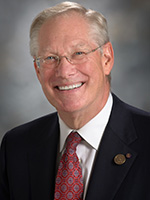
V. Craig Jordan received his BS, PhD, and DSc degrees in the Pharmacology Department, Leeds University Medical School, England. Following two years, as a Visiting Scientist, at the Worcester Foundation for Experimental Biology, MA, he returned to
Leeds University in 1976 as a tenured lecturer in Pharmacology. He is now the Dallas/Ft. Forth Living Legend Professor of Cancer Research and Professor of Breast Medical Oncology at the UT MD Anderson Cancer Center.
He has focused his 50-year career on the mechanisms of estrogen-regulated breast cancer growth and resistance to anti-estrogen therapies. His five major contributions to Pharmacology are: the metabolic activation of tamoxifen into the high-affinity
anti-estrogen 4-hydroxy tamoxifen (Jordan’s discovery led to the synthesis of hundreds of new anti-estrogens with high affinity to the ER and an understanding that anti-estrogenic action was dependent on structure not low affinity); the
characterization of acquired endocrine resistance to tamoxifen in vitro and in vivo; the translational strategies for the adjuvant treatment of ER-positive breast cancer with up to a decade with tamoxifen; the discovery of a
new group of medicines referred to as Selective Estrogen Receptor Modulators (SERMs); and the discovery of the molecular mechanisms underpinning estrogen-induced apoptosis. Five SERMs that switch on or switch off sites around a woman’s body
are FDA-approved with discovery origins in Jordan’s laboratory.
For over four decades, Dr. Jordan has closely mentored 60 PhD students, medical Fellows, postdoctoral Fellows, and visiting scholars from Japan, Taiwan and South Korea. His “Tamoxifen Team” mentees maintain regular contact and Jordan has
just published his autobiography “Tamoxifen Tales: Suggestions for Scientific Survival” as a self-help book for the next generations of pharmacologists.
Jordan is the 2184 top cited biomedical scientists in the world. Jordan’s accomplishments in pharmacology have resulted in more than 50 academic awards worldwide. He joined ASPET in 1981 and was the recipient of the: ASPET Award for Experimental
Therapeutics (1993); the Goodman and Gilman Award (2012), and the Reynold Spector Award (2019). Jordan served as a member of the Abel Award, Pharmacia ASPET Award, Goodman and Gillman Award, and the Torald Sollman Award (2013-15) selection committees. His
work has been recognized by election to the National Academy of Sciences (2009), National Academy of Medicine (2017), Academy of Medical Sciences (UK) (2009), and honorary Fellow of the Royal Society of Medicine (UK) (2008). Jordan was an inaugural
Fellow of the British Pharmacological Society (2004) and was awarded the Gaddum Memorial Award (1993) and the Sir James Black Award for contributions to drug discovery (2015).
Dr. Jordan has previously held three endowed chairs: Diana, Princess of Wales, Chair (1999-2004), Alfred G. Knudson Chair in Basic Science (2005-2009), and the V T Lombardi Chair in Translational Cancer Research (2009-2014). In 2002, Jordan was
recognized by Her Majesty Queen Elizabeth II with the Order of the British Empire, for service to international breast cancer research, and in 2019 he was appointed Companion of the Most Distinguished Order of St. Michael and St. George for services
to women’s health.
Craig W. Lindsley, PhD

Craig W. Lindsley, Ph.D. is the William K. Warren Jr. Chair in Medicine and University Distinguished Professor of Pharmacology, Chemistry and Biochemistry at Vanderbilt University. He is also the Director of the Warren Center for Neuroscience
Drug Discovery (WCNDD), a clinical stage biotech, nestled within the University. Dr. Lindsley received his BS in chemistry from California State University, Chico before completing his graduate studies at the University of California, Santa Barbara
and postdoctoral studies at Harvard University. After successful stints at Eli Lilly and Merck running a large medicinal chemistry group (2000-2006), Craig moved to Vanderbilt University to work with Jeff Conn in establishing an academic drug
discovery center, as well as a co-founder of Appello Pharmaceuticals.
Dr. Lindsley was the founding Editor-in-Chief of ACS Chemical Neuroscience (2009-2020), interim Editor-in-Chief of ACS Pharmacology & Translational Science (2020-2021) and current Editor-in-Chief of the Journal of Medicinal Chemistry.
The primary focus of the Lindsley laboratory (and the WCNDD) is the development of small molecule probes and clinical candidates for CNS targets (GPCRs, ion channels, transporters and kinases) to treat serious brain disorders. A major area of focus
has been on the development of the field of GPCR allosteric modulators, for which numerous key proof-of-concept tool compounds and clinical candidates have been developed for both mGluRs and mAChRs.
Dr. Lindsley has mentored 47 graduate students and 48 postdoctoral fellows, all of which are active scientists in both academia and the pharmaceutical industry, as well as over 60 undergraduate researchers. In addition, Dr. Lindsley oversees
and mentors 75 BS/MS/PhD scientists across medicinal chemistry, molecular pharmacology, DMPK, behavioral pharmacology and biomarkers in the WCNDD. Dr. Lindsley is also a Fellow of the Royal Society for Chemistry, the National Academy of Inventors
and the American Association for the Advancement of Science.
Dr. Lindsley has been a member of ASPET for over 15 years, and he has served on the ASPET Executive Committee (Molecular Pharmacology division, 2014-2016) and the ASPET Executive Committee (Drug Discovery division, 2018-2021). He has published
extensively in ASPET journals, presented at the annual meetings and received numerous ASPET awards, including the John J. Abel Award (2014).
Jayne S. Reuben, PhD

Jayne S. Reuben is an Instructional Associate Professor in the Department of Biomedical Sciences and Director of Instructional Effectiveness at the Texas A&M University (TAMU) School of Dentistry. She is also an Adjunct Associate Professor
at the TAMU School of Medicine. Dr. Reuben earned her PhD in Pharmaceutical Sciences with a specialization in Pharmacology and Toxicology from Florida Agricultural and Mechanical University College of Pharmacy and Pharmaceutical Sciences.
She then completed a postdoctoral fellowship at the University of Michigan in the department of Pathology under the direction of Dr. Peter A. Ward. She was recruited back to TAMU to lead instruction in pharmacology for the dental curriculum
after serving as a founding faculty member at the University of South Carolina School of Medicine Greenville.
As the School of Dentistry’s Director of Instructional Effectiveness, Dr. Reuben provides leadership and faculty development in curriculum design and delivery to enhance student learning and academic success. Her research uses quantitative
and qualitative approaches to assess learning activities that promote cognitive integration of basic and clinical science concepts to improve student learning, performance and self-efficacy. Her current interests include pharmacology gamification/game-based
learning, clinical competency rubric development, enhancing student metacognition, and creating numerous NBDHE/NBDE/NBME test items for mock board exams.
Dr. Reuben has served as the Chair and Program Representative of the ASPET Division for Pharmacology Education (DPE) as well as a member of the DPE Executive Committee for eight years. As the DPE Chair, she significantly increased the division’s
visibility and membership and continues to mentor junior and more seasoned faculty in pharmacology education. She is currently a member of the ASPET Mentoring and Career Development and Partnerships Committees as well as the Diversity Equity
and Inclusion Task Force. Dr. Reuben is a past recipient of the DPE Travel award and was recently inducted into the DPE Academy for Pharmacology Educators in 2021.
Dr. Reuben is a member of the integrated national board dental examination (INBDE) test construction team. She has received numerous teaching awards including the American Dental Education Association (ADEA)/Colgate-Palmolive Co. Excellence in
Teaching Award, the TAMU Provost Academic Professional Track Faculty Teaching Excellence Award, the TAMU School of Dentistry’s Teaching Excellence and Distinguished Teaching Awards. In addition, she was recently inducted into Omicron
Kappa Upsilon, the national dental honor society as an Honorary Member.
A frequent presenter at national and international meetings, Dr. Reuben has been conducting career development workshops for undergraduate and graduate students, postdoctoral fellows, and health professional faculty for over 15 years. She has
extensive experience in recruiting and successfully mentoring diverse students into biomedical research and health profession careers. As a peer and faculty mentor with the FASEB Maximizing Access to Research Careers Program, Dr. Reuben worked
diligently to introduce students to ASPET and pharmacology as a discipline. In 2014, she was a nominee for the National Science Foundation Presidential Award for Excellence in Science, Mathematics and Engineering Mentoring.
Des R. Richardson, PhD, DSc
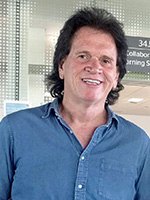
Des Richardson is the Alan Mackay-Sim Distinguished Chair of Cancer Cell Biology at Griffith University, Australia, and has held multiple international professorial appointments in Europe, Japan, China, and Canada. He received his PhD
from the University of Western Australia in Perth, Australia. He has been awarded successive competitive National Career Fellowships for more than 20 years, including the National Health and Medical Research Council of Australia Senior Principal
Research Fellowship, and is the Director of the Centre for Cancer Cell Biology and Drug Discovery.
His research examines the development of anti-cancer drugs, such as Dp44mT and DpC, to treat belligerent tumors. These agents demonstrated
unique targeting of metals and multi-functional efficacy by inhibiting metastasis, the major killer in cancer by up-regulating the metastasis suppressor; inhibiting tumor growth by lysosomal-targeting; and overcoming P-glycoprotein-mediated resistance.
Professor Richardson has been the recipient of many competitive grants and has maintained national funding throughout his career, as well as highly consistent international funding, including from the Muscular Dystrophy Association, the European
Union, and the Michael J. Fox Foundation.
He has published numerous articles, reviews, and patents of his work has been published in top-ranked international journals, including Cell, Lancet, Cancer Research, and many others, and he
has been on the editorial boards of various international journals. This long-standing contribution and the quality of his editorships was underlined by the Biochemical Journal Editor of the Year Award in 2008.
Dr. Richardson’s
program is a training hub for local and international researchers. He has supervised 76 PhD, 5 Masters, 42 Honours, and Graduate Diploma students, 63 Post-Doctoral Fellows, 31 Research Assistants, and 54 undergraduate research projects. Over the
past 11 years, 46 PhD students have graduated from his program, with 15 receiving the prestigious Peter Bancroft Prize for an Outstanding PhD thesis without corrections. Many of his PhD students and postdocs have received multiple prizes and medals,
publishing between 6 and 24 articles during their PhD, and have gone on to various prestigious national and international fellowships.
Dr. Richardson has been a long-standing ASPET member for 15 years, and he was a Molecular Pharmacology
Editorial Board member for 13 years. Since 2002, he has published 24 substantial articles and reviews in ASPET journals. In 2022, he was honored with the Otto Krayer Award in Pharmacology from ASPET for outstanding scholarship, editorship, and
mentorship.
Alan Saltiel, PhD

Alan R. Saltiel is Professor of Medicine and Pharmacology, and Director of the Institute for Diabetes and Metabolic Health at the University of California, San Diego. He received his AB in Zoology from Duke University in 1975, and his PhD in Biochemistry
from the University of North Carolina in 1980. From 1981-1984 he did postdoctoral training with Pedro Cuatrecasas at the Wellcome Research Laboratories in Research Triangle Park, NC, studying mechanisms of insulin action. In 1984 he moved
to the Rockefeller University as Assistant Professor, continuing work on the molecular and cellular biology of insulin action. In 1990 he joined Parke Davis Pharmaceutical Research as a Distinguished Research Fellow and Senior Director/Vice
President of Cell Biology, and directed drug discovery activities in diabetes, obesity and cancer.
He was responsible for preclinical studies on troglitazone, the first thiazolidinedione approved for the treatment of type 2 diabetes. He also developed the first MEK inhibitors for the treatment of cancer, the first to receive approval from the
Food and Drug Administration for melanoma and other cancers. In 2001, Dr. Saltiel moved to the newly created Life Sciences Institute at the University of Michigan and was named its founding Director, and John Jacob Abel Professor in the Life
Sciences. In 2015 he moved to the University of California, San Diego to create the Institute for Diabetes and Metabolic Health. He directs the Institute as well as the UCSD/UCLA Diabetes Research Center.
Dr. Saltiel’s primary contributions concern the specificity of receptor signaling events governing metabolism and cellular growth. He uncovered a new pathway critical to the stimulation of glucose uptake by insulin, including the cloning
of new adapter proteins, the identification of protein interaction domains that ensure the localization of signaling or cytoskeletal proteins, and the understanding of complex crosstalk among signaling networks. He elucidated how insulin controls
dephosphorylation in specialized cellular compartments, by cloning the first “molecular scaffolding” proteins. His laboratory also studied the relationship between obesity and insulin resistance, uncovering an unexpected role of
the innate immune system as a molecular link between these two states.
Dr. Saltiel has received numerous awards, including the Rosalyn Yalow Research and Development Award from the American Diabetes Association, and the Hirschl Award. He has been a member of ASPET since 1988, and won the John Jacob Abel, Goodman
and Gilman and Pharmacia-ASPET Awards from the Society. He was elected as a fellow of the American Association for the Advancement of Science, elected to membership in the American Society of Clinical Investigation, and the National Academy
of Medicine. He has given many named lectures and organized numerous meetings and conferences, and served on advisory panels, scientific and editorial boards, including the Advisory Council of National Institute of Diabetes and Digestive Kidney
Disease.
Dr. Saltiel has mentored over a hundred students, fellows and junior faculty, continues to encourage young scientists to collaboratively focus on important problems in human health, and unites scientists to collaborate in metabolic disease. Throughout
his career he has contributed to the mission of ASPET, serving on Grant Review, Research Policy, and other mentoring committees.
Daniela Salvemini, PhD

Daniela Salvemini is the William Beaumont Professor and Chair of the Department of Pharmacology and Physiology at Saint Louis University (SLU) Medical School and Director of SLU’s Henry and Amelia Nasrallah Center for Neuroscience. Dr.
Salvemini received her BSc in pharmacology from Kings College in London and her PhD in pharmacology from the University of London under the mentorship of the late Nobel Laureate Professor Sir John Vane, where she investigated the role
of nitric oxide as an intercellular messenger between platelets, neutrophils and the vascular endothelium. She pursued her postdoctoral studies at the William Harvey Research Institute in London with Professor Vane, then moved to the Department
of Discovery Pharmacology at Monsanto in Saint Louis, Missouri, to pursue studies on nitric oxide and prostaglandins in inflammation.
Before joining SLU in 2005, Dr. Salvemini spent 15 years in the private sector where she led drug discovery efforts on novel anti-inflammatory agents and analgesics, advancing several therapeutics into clinical trials. Dr. Salvemini’s
research focuses on cellular and molecular mechanisms underpinning neuropathic pain and therapeutics to target these mechanisms. Her research has led to paradigm-shifting concepts in several therapeutic areas, opening doors to new fields
of research and therapeutic applications. Her early work led to the discovery that cyclooxygenases are endogenous cellular targets of nitric oxide, advancing our mechanistic understanding for the roles of nitric oxide in pathophysiological
settings. Dr. Salvemini has been the leading force behind the therapeutic development of small molecule, synthetic superoxide and peroxynitrite decomposition catalysts for various disease states including pain. She has significantly advanced
our understanding of molecular and cellular mechanisms underpinning neuropathic pain and opioid-induced adverse effects by unravelling previously unrecognized roles of superoxide and peroxynitrite, S1P and adenosine acting at the A3AR
as well as their cross-talks. This work identified the GPCR, A3AR and S1PR1 as targets for therapeutic intervention. In 2014, she co-founded BioIntervene Inc., which is advancing A3AR agonists to treat pain and neuroinflammatory diseases.
Dr. Salvemini has been an active ASPET member for over twenty years and participates frequently in ASPET Symposia in her field. She is a Fellow of the Saint Louis Academy of Science (2014) and a Fellow of the National Academy of Inventors
(2020). She received several awards for her work on pain and inflammation, including the Pharmacia ASPET Award for Experimental Therapeutics (2020). She is an Editorial Board Member of ACS Pharmacology and Translational Science and Editorial
Board Member, American Journal of Physiology. She serves on numerous committees and boards, including the National Institutes of Health Study Section and NIH/NINDS External Consultant Board, Preclinical Screening Platform for PAIN. She
has published over 250 peer-reviewed articles and holds many U.S. patents. Her research has been funded consistently by the NIH, foundations and the private sector.
Her commitment to mentorship, diversity, equity and inclusion
was integral to her success as a leader in the private sector and academia. She has mentored many graduate students, postdocs, visiting scientists, medical students, clinical scientists and staff, many of whom have pursued successful careers
in academia, the private sector and government.
Emily E. Scott, PhD

Emily Scott is the F. F. Blicke Collegiate Professor of Pharmacy at the University of Michigan. Her studies of heme proteins originated during undergraduate Marine Biology fieldwork at Texas A&M at Galveston and grew with myoglobin research
during her PhD in Biochemistry and Cell Biology at Rice University with Drs. John Olson and Quentin Gibson. She studied cytochrome P450 enzymes as a postdoctoral NRSA fellow at University of Texas Medical Branch with Professor James Halpert,
during which she notably generated one of the first membrane P450 structures. In 2004 Dr. Scott became Assistant Professor in the Department of Medicinal Chemistry at University of Kansas, rising through the ranks before moving to the University
of Michigan Department of Medicinal Chemistry.
Dr. Scott is a leader in human cytochrome P450 structure and function. During eighteen years of her independent career, she has worked on over 25 human membrane cytochrome P450 enzymes. Her laboratory is best known for generating the first X-ray
structures of many drug- metabolizing and steroidogenic P450s. Key interactions with ligands and redox partners are elucidated using detailed studies of catalytic function and also solution NMR. Her current work is revealing key insights into
human P450 enzymes that are novel drug targets. Dr. Scott’s research has been continuously funded by the National Institutes of Health (NIH) since 2006, and these research accomplishments have been recognized by the North American New
Investigator Award from the International Society for the Study of Xenobiotics, the Early Career Achievement Award from the ASPET Drug Metabolism Division, an NIH MERIT award, and as a Fellow of the American Association for the Advancement
of Science.
Dr. Scott’s research accomplishments reflect effective training and collaboration with graduate students and postdoctoral fellows in her lab. Coming from a disadvantaged background herself, Dr. Scott has a keen interest in the scientific
training and education of all individuals across our society. Dr. Scott mentored over 60 undergraduates, graduate students, and postdoctoral fellows. Strong scientific training, personalized mentoring, and exemplary integrity have served trainees
well as they moved on to diverse careers in academia, industry, biotech, clinical trials, pharmacy, and government. Her mentoring extends beyond her lab, currently she serves as co-principal investigator of a T32 training grant and mentoring
of junior faculty at other institutions.
Dr. Scott exemplifies a stalwart commitment to ASPET. A member since 2002, she began as Councilor in the Drug Metabolism and Disposition Division (DMDD), rising to become Division Chair in 2014. Dr. Scott has served many years as judge for travel
awards and posters and on selection committees for the James R. Gillette Best paper and Bernard B. Brodie Awards. She has been on the editorial board of Pharmacological Reviews and currently serves on Drug Metabolism and Disposition, as
well as being recent Chair of the Board of Publication Trustees. She also served as a member of Council and Council Liaison to DMDD. Dr. Scott currently sits on the ASPET Finance Committee and contributed to her Division’s Meet the Experts
session at the 2022 meeting.
Karam F.A. Soliman, PhD
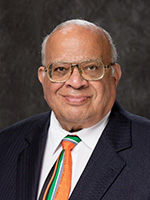
Karam F.A. Soliman is the Associate Dean for Research and Graduate Studies and a Distinguished Professor of Pharmaceutical Sciences at the College of Pharmacy and Pharmaceutical Sciences, Institute of Public Health of Florida A&M University
(FAMU). Dr. Soliman received his MS and PhD in physiology from the University of Georgia in 1971 and 1972 respectively. He started his academic career in 1972 as an assistant professor of physiology/pharmacology at the School of Veterinary
Medicine of Tuskegee Institute. He moved to FAMU in 1975, where he was involved in teaching, research and graduate education in neuropharmacology and cancer pharmacology.
Dr. Soliman has made numerous seminal discoveries in cancer and natural product research. In cancer, he discovers that the cancer cell pH is a crucial factor in cancer pathologies, such as cell proliferation, invasion, metastasis, drug resistance,
and apoptosis. Also, his work has significantly contributed to understanding the flavonoid anticancer mechanisms of action. His work on flavonoids indicates that the natural products thymoquinone, rosmarinic acid, oleuropein, and gossypol
are highly effective in inhibiting chemoresistance genes in triple-negative breast (TNBC) cancer cells. Therefore, flavonoids would be a promising strategy for preventing and treating cancer in TNBC patients. In addition, Dr.
Soliman's research has been key in the involvement of Nrf2 in aging, COVID-19, and neurodegeneration. His recent work indicates that Nrf2 activation by flavonoids can enhance the antiviral activity, which could initiate an "antiviral state,"
priming cells against COVID-19 viral infection. Therefore, the use of flavonoids may be a potential strategy to prevent and/or decrease SARS-CoV-2 infection severity.
Dr. Soliman is considered the top trainer (major professor) of African American PhD graduates in pharmacology/toxicology in the U.S. His record includes training 32 PhD, 22 MS, and 11 postdoctoral fellows in pharmacology/toxicology. He has also
published extensively in over 200 national and international refereed journals. His work includes one book, five book chapters, and four United States patents. During his tenure at FAMU, he was awarded federal research grants totaling over
$96 million from the National Institutes of Health, NASA, the Office of Naval Research, and the Department of Energy.
Dr. Soliman's numerous honors and awards are a testament to his contributions to research and mentoring in Pharmacology. In 1991 he received Florida Endowment Fund's William R. Jones Most Valuable Mentor Award for mentoring minority PhD students
in pharmacology. In 1994 he was the top "Number1" most frequently published faculty member in the science departments at all Historically Black Colleges and Universities in the U.S., as listed in the Journal of Blacks in Higher Education.
In 1996 he received the 3M Endowed Distinguished Professor in Pharmaceutical Sciences Award. In 1999, he received the Florida A&M University Millennium Award, the highest award offered by FAMU, and was named "FAMUAN of the Century." In
2010 he received the Frederick C. Greenwood for Research Excellence Award from Research Centers in Minority Institutions Program Directors Association. Moreover, in 2018 he received the Florida A&M University Research Leadership Presidential
Award.
Roger K. Sunahara, PhD

Roger K. Sunahara received his PhD and graduate training with Dr. Philip Seeman in the Department of Pharmacology at the University of Toronto. He later joined the laboratory of eminent biochemical pharmacologist, Dr. Alfred G. Gilman, at the
University of Texas Southwestern Medical School as a post-doctoral fellow. His training has provided a strong foundation and appreciation for the applications of pharmacology, biochemistry and structural biology to delineate mechanisms of
action. Dr. Sunahara started his independent research career in the Department of Pharmacology at the University of Michigan Medical School, where he climbed the academic ladder. In 2015 he moved his laboratory to the Department of Pharmacology
at the University of California in San Diego. His main area of research focuses on the structural and pharmacological bases for hormone-mediated activation of G proteins by G protein-coupled receptors (GPCRs).
The Sunahara lab utilizes biochemical, biophysical and pharmacological methodologies to study GPCR-G protein interactions. These approaches were invaluable to resolve the crystal structure of the β2-adrenergic receptor (β2AR)-G
protein complex, team effort with long-time collaborator Brian Kobilka. The structure was first snapshot of the agonist- and G protein-bound GPCR, providing valuable models for agonist-mediated activation of G proteins. We continue to utilize
these data to better understand the basis for receptor-G protein specificity and agonist efficacy. Our mission is to understand the mechanism and structural bases for ligand binding and efficacy to help optimize the design and engineering
of more efficacious therapeutics.
This is an important perspective in the pursuit of receptor subtype-specific ligands, a major aspect to achieve safer, on-target therapeutics. One example of our recent work surrounds a structure-based effort to develop ligands that specifically
target the β2AR above all other adrenergic receptor isoforms. Our goal is to develop safer β2AR-selective ligands for the treatment of asthma and acute rescue therapy for anaphylaxis. We also study non-canonical
sites, those outside of the native hormone, or orthosteric, binding sites. We have identified several GPCR ligands that allosterically modulate orthosteric ligand binding and target sites that are often located in regions that display higher
sequence variability among receptor subtypes. Again, our intention is to target specific receptor subtypes.
Dr. Sunahara has published his work in numerous journals, including Nature, Science, and Cell. Since 2003 he has been a principal and co-principal investigator for various research funded by the National Institutes of
Health. At the University of Michigan, he has actively participated on various committees focusing on protein structure, single molecule spectroscopy, design and dynamics, and macromolecular structure. He has also received speaking invitations
at national and international symposia and conferences, including the Gordon Research Conferences on Phosphorylation and G-protein Couples Receptor. Dr. Sunahara has also been committed to teaching graduate students and postdoctoral fellows
in the laboratory and in joint research sessions.
R. Clinton Webb, PhD
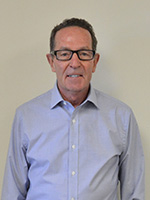
R. Clinton Webb graduated from Southern Illinois University in 1971 and received his PhD in Anatomy from the University of Iowa in 1976. After postdoctoral training at the University of Michigan and the Universitaire Instelling Antwerpen,
he joined the faculty of the Department of Physiology at the University of Michigan in 1979, reaching full Professor in 1989. In 1999, he joined the faculty at the Medical College of Georgia, Augusta University where he was the Herbert
S. Kupperman Chair in Cardiovascular Disease and Regents’ Professor in the Department of Physiology. He served as Chair of the Department of Physiology for 19 years. In 2020, Dr. Webb was appointed Professor of Cell Biology and
Anatomy and Director of the Cardiovascular Translational Research Center at the University of South Carolina. He is an affiliate faculty member in the Biomedical Engineering Program in the College of Engineering and Computing.
His research interests focus on the physiology smooth muscle with particular emphasis on hypertension, bladder physiology and sexual dysfunction. He has published over 360 peer-reviewed papers and 150 book chapters and reviews.
Mentoring is one of the strongest attributes of Dr. Webb and for nearly four decades he has promoted the careers of many students and post-doctoral fellows. Forty-nine postdoctoral fellows have trained in his laboratory, and he has served
as the thesis supervisor for 22 graduate students. He has served on 77 dissertation committees and over 100 undergraduate students have trained in his laboratory. Nineteen faculty from universities around the world have spent their
sabbatical leave in Dr. Webb’s laboratory. He was the first recipient of the Bodil M. Schmidt-Nielsen Distinguished Mentor and Scientist Award from the American Physiological Society in 2004. Dr. Webb has served on numerous study
sections for the National Institutes of Health, the American Heart Association, Veterans Administration and the Sexual Medicine Society of North America. He has also served on numerous local, national and international committees.
Dr. Webb joined the American Society for Pharmacology and Experimental Therapeutics in 1984. He served on the editorial board of the Journal of Pharmacology and Experimental Therapeutics from 1989 to 1998. He was a Guest
Field Editor from 1990 to 1992 and served as the Field Editor for Cardiovascular Pharmacology from 1993 to 1998. He has also served on the Subcommittee on the Graduate Student Convocation of the Committee on Education (1999-2001),
the Committee on Graduate Recruitment and Education (2001-2002), the Scientific Program Committee (ad hoc) (2005-2006), the Executive Committee, Division of Systems and Integrative Pharmacology (2003-2009) and served as Chair from
2006-2009, Promoting Success Through Diverse Career Coaching, ASPET Mentoring Network (2018-2020), and the Awards Committee, Division for Cardiovascular Pharmacology (2008-2018).
He is also an active member of several
other societies, including the American Heart Association, American Physiological Society, American Urological Association, Society for Pelvic Research, Sexual Medicine Society of North America, Society for Gynecologic Investigation,
and The Biochemical Society. He served as the Chair of the Council for High Blood Pressure Research of the American Heart Association from 2006 to 2008.
Jürgen Wess, PhD

Jürgen Wess is the Chief of the Molecular Signaling Section, Laboratory of Bioorganic Chemistry at the National Institute of Diabetes and Digestive and Kidney Diseases at the National Institutes of Health (NIH). He received his PhD in Pharmacology
from the Goethe University in Frankfurt/Main in Germany, and subsequently worked as a Postdoctoral Fellow at the National Institute of Mental Health and the National Institute of Neurological Disorders and Stroke. Dr. Wess is a pharmacologist
with a primary interest in the general area of G protein-coupled receptors (GPCRs).
Dr. Wess' pioneering work in the GPCR field has led to many fundamental new insights into GPCR function and physiology. Specifically, Dr.
Wess is the leading researcher in characterizing the physiology and pathophysiology of the five muscarinic acetylcholine receptor subtypes (M1-M5). His work in this field has opened exciting new opportunities for the development of receptor
subtype-selective muscarinic ligands as novel drugs for the therapy of various human diseases, including diabetes, drug addiction, schizophrenia, and Alzheimer's and Parkinson's diseases. More recently, Dr. Wess' lab has used novel, muscarinic
receptor-based engineered GPCRs (DREADDs) to identify new drug targets for the treatment of diabetes and obesity. Dr. Wess and his coworkers also started to explore the metabolic roles of the two beta-arrestins by phenotyping cell type-specific
beta-arrestin mutant mice. The ultimate goal of these studies is to identify GPCRs or GPCR-linked signaling pathways that can be targeted for the treatment of diabetes and obesity.
Dr. Wess has published more than 300 peer-reviewed
journal articles in numerous scientific journals, including many articles in the world’s most highly regarded journals in the biomedical field. He is a regular speaker at the top meetings in his field including the Gordon and Keystones
Conferences and he has given numerous keynote lectures at many national and international meetings. Dr. Wess has received various awards, including the NIH Director’s Award, the Pharmacia-ASPET Award for Experimental Therapeutics, and
the Nancy Nossal Mentoring Award for outstanding mentoring skills.
Dr. Wess has been an active member of ASPET for more than 20 years since joining the Editorial Board of Molecular Pharmacology in 2021. Dr. Wess has also been a
speaker at various ASPET symposia, has helped co-organize ASPET meetings, and is a regular participant of meetings organized by ASPET.
Through his pioneering research in the GPCR field, Dr. Wess has greatly advanced our knowledge
in this area of pharmacology, with very important translational implications. He has trained and mentored a very large number of young pharmacologists and many of his former mentees now hold leading positions in the pharmacology field, academia
and industry. Dr. Wess’ research team has always been very diverse, and he has always been a very strong supporter of young scientists from minority backgrounds. Dr. Wess is also well known as an exceptional mentor of junior colleagues.
Thomas C. Westfall, PhD
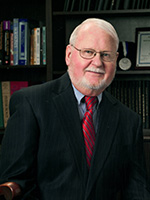
Thomas C. Westfall is currently the William Beaumont Professor and Chair Emeritus, Department of Pharmacology and Physiology at Saint Louis University School of Medicine. Dr. Westfall received his undergraduate and PhD degrees from West Virginia
University (WVU) in 1959 and 1962 respectively. He did his postdoctoral work in the laboratory of Nobel Laureate Professor U. S. von Euler, Department of Physiology, Karolinska Institute in Stockholm, Sweden. Dr. Westfall has had many faculty
appointments, including in the Department of Pharmacology, WVU School of Medicine for two years; at the University of Virginia School of Medicine, Department of Pharmacology for 14 years; and in the Department of Pharmacology and subsequently
Pharmacology and Physiology at Saint Louis University School of Medicine for 37 years, where he was both a professor and Chair. He was a visiting scholar in the laboratory of Dr. Jacques Glowinski Group of Biochemical Neuropharmacology at
the College of France in Paris.
Dr. Westfall’s research interests through the years have centered around coming to an understanding of the mechanisms regulating the synthesis and release of catecholamines (dopamine, DA; norepinephrine and epinephrine) from the central
and autonomic nervous system; the role of cotransmitters, especially neuropeptide Y (NPY) in physiological and pathophysiological conditions; the neuropharmacology of smoking and nicotine and the role and interaction of the sympathetic nervous
system (SNS), NPY and the renin-angiotensin system (RAS) in the development and maintenance of hypertension. He became an internationally recognized expert in these subjects and made numerous pioneering contributions.
Dr Westfall has been continuously funded by the National Institutes of Health from 1965 until his retirement in 2016 with grants from NHLBI, NINCDS, NIDA and NIGMS. He was Program Director of a training grant in Pharmacological Sciences from NIGMS
for 25 years and in Neuropharmacology from NINDS for 10 years. He has supervised the training of 27 PhD and MD/PhD students and 17 postdoctoral fellows. Many of his former students have gone on to hold leadership positions in academia, industry,
and government. Dr Westfall has given over 120 presentations at national and international meetings and institutions throughout the world including 5 named lectureships. He has been both a Welcome Visiting Professor and Grass Traveling Scientists
in neuroscience.
Dr. Westfall has been a member of ASPET since 1965 and has served on numerous editorial boards and in a variety of leadership positions with academic societies, and federal review panels including: Treasurer and President, (Association of Medical
School Pharmacology Chairs); Chairman, Graduate Student Convocations Committee, ASPET; Chairman Nominating Committee, ASPET; Chairman, Neuropharmacology Division, ASPET; Membership in the following ASPET Committees (Professional Affairs, Public
Affairs, and Educational Affairs); Administrative Board, Council of Academic Societies, AAMC; Executive Committee of the GREAT Group, AAMC; Member of the Pharmacology Test Committee, National Board of Medical Examiners and regular members
of three permanent NIH Study Sections. He also served on more than 56 special review and emphasis panels for NIH and had been an external reviewer for 14 academic departments and graduate programs.